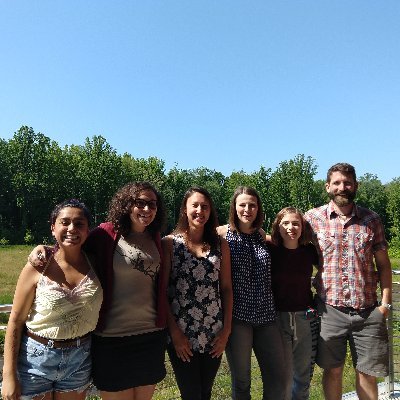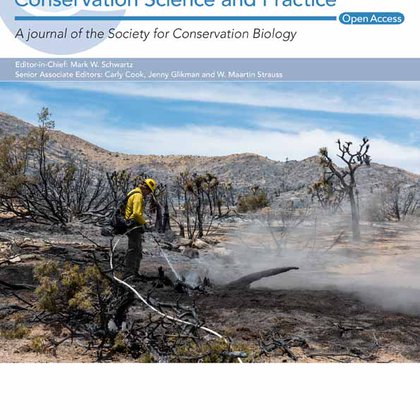
UNCG_EcoConservation
@UNCG_EcoConserv
Followers
439
Following
107
Media
113
Statuses
307
We are the Ecosystem Conservation Lab at @UNCG, studying how terrestrial ecosystems respond to global change factors.
Greensboro, NC
Joined September 2018
From microbes to vertebrates, species interactions build and shape ecosystems. Studying species interactions helps us learn more about how ecosystems function and respond to global change. In our lab, we study a diversity of species interactions.
1
2
8
#beanDIPdiaries team spotlight: Brendan Randall! Brendan is a second-year Entomology Master’s student in Dr. Karin Burghardt’s lab at the University of Maryland.
2
0
2
Another #beanDIPdiaries team spotlight: Meet John Parker! Dr. John Parker is an ecologist and the head of the SERC Terrestrial Ecology Laboratory.
1
0
7
After a short hiatus, we're back to #beanDIPdiaries! Today's Team Spotlight is Sarah Alley:."I am a technician in the Ecosystem Conservation Lab at SERC and assist with lab work, field work, and greenhouse studies as part of the beanDIP project."
1
0
5
The Ecosystem Conservation lab is moving to @UNCG this fall! We're excited for new research opportunities, while still maintaining existing projects. Stay tuned for more!.
0
4
19
Team Spotlight #BeanDIPDiaries: Shelley is the head technician in the Ecosystem Conservation lab at SERC and is interested in plant-insect interactions in the context of global change and conservation.
1
0
6
Achieving Sustainable Development Goals requires teamwork and research. Check out the highlight of our recent paper written by Caitlyn Dittmeier, all about how @SmithsonianWLS projects address the UN SDGs at the link below, and read the full paper here:
conbio.onlinelibrary.wiley.com
The United Nations Sustainable Development Goals (SDGs) provide a global blueprint to end extreme poverty, reduce inequality, and protect the planet. Progress toward these goals is falling short....
In a new paper, the team highlights how a holistic approach to conservation can balance the needs of people and nature. Learn more with #EarthOptimism Voices:
0
1
3
Team Spotlight #BeanDIPDiaries: Meet Mia Gaughan, an intern @SERC_Conserv from Vassar College.
1
0
5
RT @drkimkomatsu: Experts from around the world weigh in on the magnitude and consequences of global biodiversity loss in a new paper led b….
0
11
0
"Finding a nature-based solution to crop damage will help to protect both the environment and benefit farmers who rely on the success of these crops for their livelihoods. The ultimate goal of our work is to identify solutions that benefit both people and nature." #BeanDIPDiaries
0
0
0








